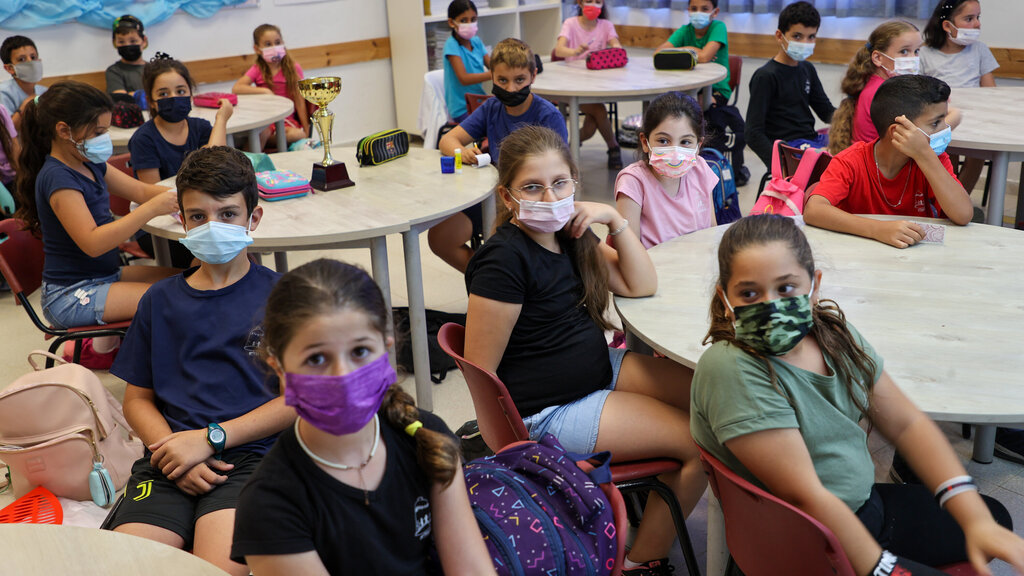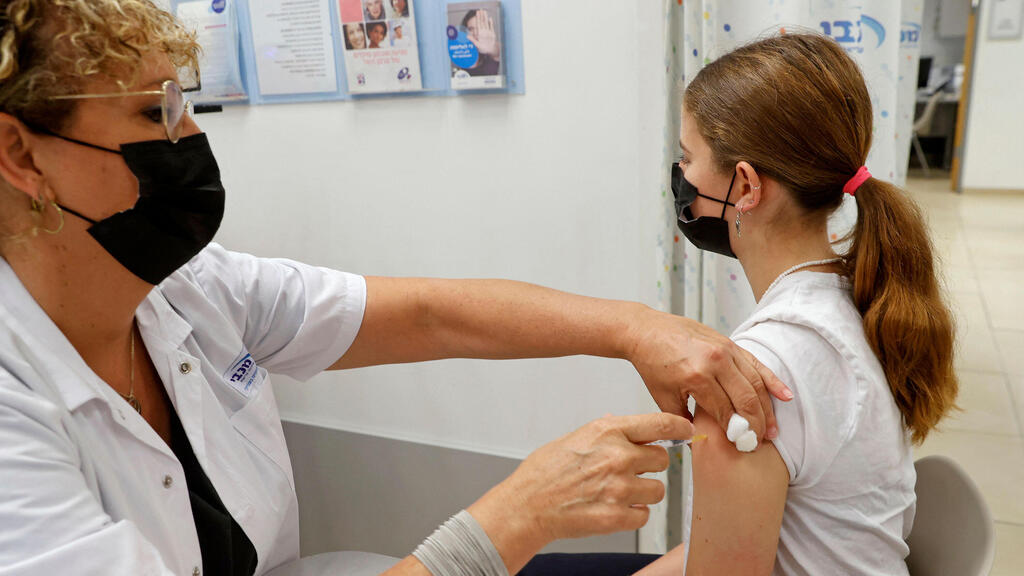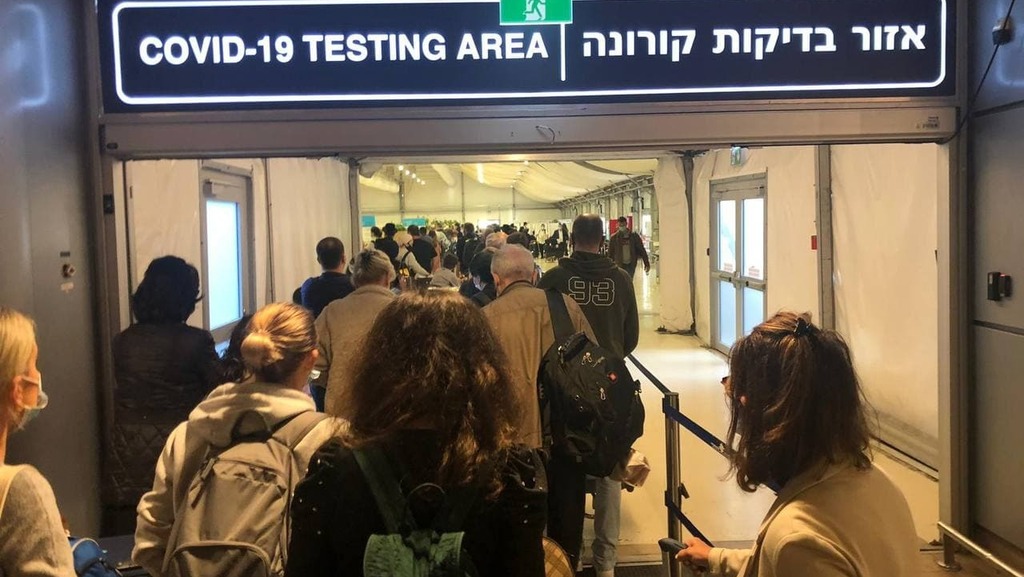A senior health expert said on Monday that the coronavirus in Israel is under better control than in other countries despite the increased spread of the Delta variant that was observed in recent days.
Professor Ran Balicer, who heads a panel of medical professionals advising the Health Ministry said that the fact that most Israelis were already vaccinated against COVID-19 protected the country from a rise in morbidity. "There is no cause for panic," he said.
3 View gallery


School children in Modi'in face masks after a coronavirus outbreak was detected there last week
(Photo: Yariv Katz)
Balicer said in an interview on Ynet, that the situation at the Ben Gurion International Airport, where a growing number of passengers were arriving from countries with high rates of contagion and over-crowding was hampering coronavirus testing efforts, was unfortunate.
"We must understand that this is a complicated time because of the Delta variant of the virus," he said.
The U.K. is the country most appropriate to compare Israel to because of their successful vaccine drive, but they have only vaccinated 60% of the adult population thus far compared to 85% in Israel," he said. "We may also see community spread here as was demonstrated in Britain, but our vaccinated population might prove to provide a better protection and any outbreaks detected, and we should be able to contain such outbreaks," Balicer said.
"We may not be able to know how successful we can be, in advance," he said adding that great efforts were needed in the coming weeks, to prevent more cases from entering the country.
Ynet has leaned that at close to 5,000 people arrived at Ben Gurion Airport from Russia in the past month and at least 31 of them had COVID-19, representing 0.63%, of passengers, the highest rate of cases recorded in Israel.
But the Delta variant was already in the country, Balicer said and the airport was not the only source of its spread.
"Vaccinated adults were for the most part protected by vaccines, but some could still be infected with 5%-10% of those exposed to the so-called UK variant susceptible and 10%-20% of those exposed to the Delta variant could be infected. 95% of those who received two doses of the Pfizer vaccine were protected enough to prevent serious illness or hospitalization," he said.
Balicer said the Health Ministry was still evaluating data before making its final recommendation to vaccinate young teens age 12 to 15.
"This is a complex matter," he said. "We are reviewing all the data accumulated by the ministry. We found that girls were less likely to suffer from unwanted side effects than boys," Balicer said.
3 View gallery


A 14-year old girl receives her coronavirus vaccine in Tel Aviv earlier this month
(Photo: AFP)
"I would certainly recommend vaccinating the children in areas where an outbreak was detected. But since there is a higher risk for boys from a passing inflammation of the hear muscle, a side effect of the vaccine, I think the decision should be made in consultation between parents and their doctors until there is a final ministerial recommendation," he said. "I would certainly recommend all kids to receive their vaccines before overseas travel," Balizer said.
The senior health official said the renewal of a mask mandate for indoor settings should not be imposed but a recommendation to use masks was warranted. "Ultimately it a matter of personal responsibility to protect our health," he said but added that that too would be part of the conversation inside the Health Ministry.


